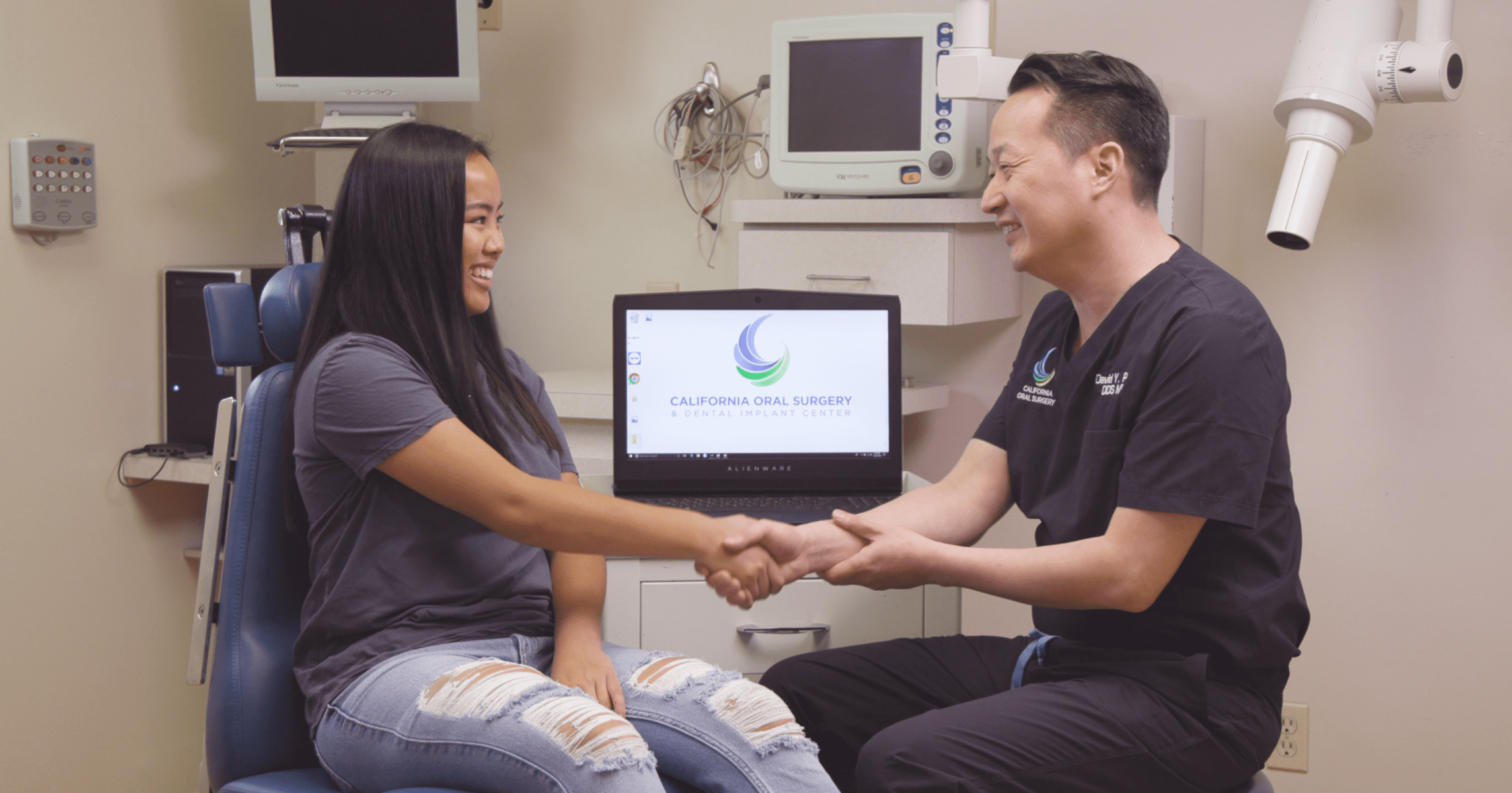Extensive oral surgery is comparable to extensive surgery in other body areas. It is expected that a small percentage of people may encounter some complications in healing. In the case of extreme pain, uncontrolled bleeding, or any unusual disturbance of emergency nature, be sure to have followed these instructions, then call the office to secure further instructions.
YOUR OWN CARE WILL SPEED RECOVERY.
It is common to have difficulty opening your mouth. To hasten normal opening, apply heat to the sides of your face, and massage the muscles of your jaw and the temple regions. Next, crisscross your thumb against your upper teeth and your finger against the lower teeth and stretch your mouth open gently but with constant pressure. You may need to do this 610 times a day for the first 23 days. Hold the mouth in the open position for 1 minute when stretching.
Call this office if you are in doubt about anything or if you develop severe pain, persistent fever, bodily illness, or any other unusual disturbance.
DO NOT DRIVE OR OPERATE MACHINERY FOR 24 HOURS AFTER RECEIVING ANESTHESIA OR SEDATION OR AFTER TAKING PRESCRIPTION PAIN MEDICATION. DO NOT USE ALCOHOLIC BEVERAGES ON THE DAY OF SURGERY OR AT ANY TIME WHILE TAKING PRESCRIPTION PAIN MEDICATION.
If a post-operative appointment is necessary, please return to our office.




